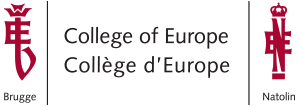17/07/2023
WEASA2023 successfully concluded
Another successful edition has once again made its way into the history of WEASA. Hosted at the College of Europe in Natolin, the WEASA2023 Program was deliberately designed with the global geopolitical environment in mind, with a particular emphasis on the effects of the Russian aggression against Ukraine in the countries of Eastern Partnership and Western Balkans.
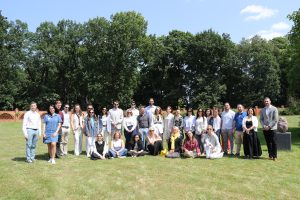
40 representatives from 13 countries participated in the intense 10-day summer academy, which included panel discussions, workshops and sessions on the future of the Eastern Partnership and Western Balkans, the role of NATO in the regions, as well as tips, tricks, and tools to safely navigate in the digital space.
Robert Pszczel, a former NATO official and former head of NATO Moscow Office, gave the opening keynote address to kick-off WEASA 2023.
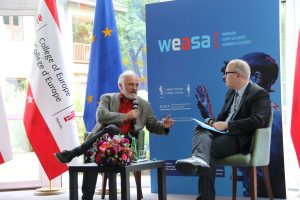
Throughout the program, WEASA featured speakers from NATO, the EU civilian mission in Ukraine, the Atlantic Council’s DFRLab, Bellingcat, META, the University of Westminster, the University of Graz, the European Council on Foreign Relations, etc. Here we provide the full profile of WEASA2023 Speakers.
In addition to the sessions at the College of Europe in Natolin, WEASA participants made a special visit to the Polish Diplomatic Academy and attended a session led by Prof. Przemysław Żurawski vel Grajewski, Professor at the University of Łódź and adviser to the Polish Minister of Foreign Affairs, and Chair of the Presidential Security and Defense Council.
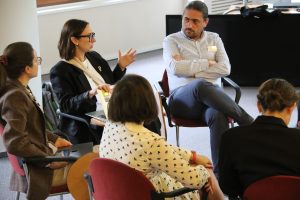
On the basis of the suggestions made by the participants from the previous years, two novelties were incorporated this year. One of them was the country presentations about their Euro-Atlantic integration through a SWOT analysis. This session was very effective as participants discovered many commonalities between their countries’ pathways. In fact, WEASA is one of the rare projects in Europe where mid-career professionals from these two different regions meet and discuss common issues. In addition, they sought new ways of cooperation especially in the sphere of digital security and European integration.
Another novelty was the introduction of Oxford-style debate. With high-level profiles among the participants one would easily assume that the debate would be successful. However, what our two teams did, was just A-MA-ZING. The topic of the debate was related to usage of ChatGPT and its impact on society.
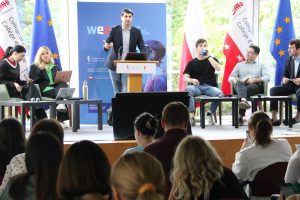
The participants also had the chance to network, socialise and make new friendships.
Here is the alumni photo of our #WEASA2023. We believe they will be engaged in alumni activities.
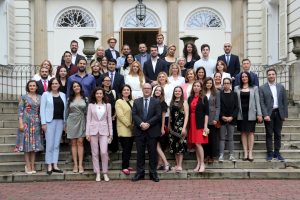
WEASA is an annual summer school for mid-career professionals from the Eastern Partnership, the Western Balkans, and Poland. Each year, a wide range of policy analysts, experts, advisers, civil servants, NGO professionals, and journalists, take part in the academy. WEASA is co-organized by The College of Europe in Natolin, The German Marshall Fund of the United States, and the Polish-American Freedom Foundation.


